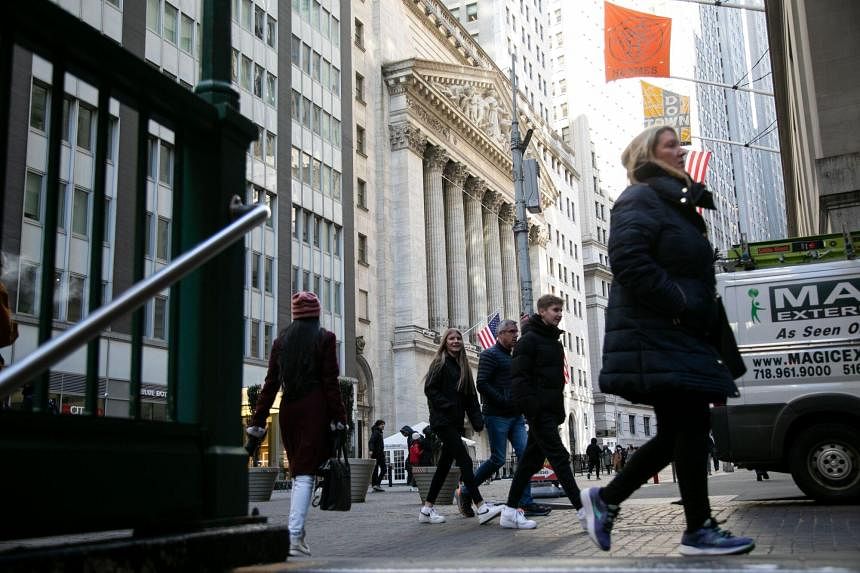SINGAPORE - An investor does not need to be a Taylor Swift fan but should still grasp the impact she has on the economy. On the opening night of her Eras tour in Arizona in March 2023, the concert resulted in more revenue for local businesses than the Super Bowl, which had been played earlier in February in the same stadium.
Mr James Cheo, chief investment officer at HSBC Global Private Banking and Wealth (South-east Asia and India), used this example to illustrate the need to understand the drivers of the economy. He was speaking at a market outlook event for HSBC Premier Elite customers on Feb 6 held at the Mandarin Oriental hotel.
The need to invest even though cash rates are still relatively high
Mr Cheo noted that 2023 was a year to be invested. China stocks fell 11.2 per cent and oil fell 3.8 per cent, according to HSBC research, but stocks elsewhere and other asset classes showed strong growth.
Apart from the United States technology sector, which delivered 55.1 per cent growth, other examples of positive performance came from hedge funds which were up 4.4 per cent, and British stocks with 14.1 per cent growth. India stocks surged 20.8 per cent.
Mr Cheo said: “The message is that in 2023, if you didn’t invest, you would have lost out. Everyone thought that the US was going to crash but the US economy was resilient, with 70 per cent of the economy as consumers. This year, the US economy is unlikely to fall into a recession.
“We see pockets of resilience in Asia; China is not going to collapse and will grow. India is expected to grow around 6 per cent.”
Asian economic growth rates remain positive. For Asia ex-Japan, the rate is 4.5 per cent.
Another reason for entering the markets now is that markets tend to rally before the first rate cut by the US Federal Reserve.
US stocks may be seen as overvalued but there are areas of growth
One misconception is that US stocks are overvalued, but much of the gains in 2023 were driven by the large tech giants, said Mr Cheo. Comparing the returns of the Standard & Poor’s (S&P) Index with BBB bonds and an equally weighted S&P, the current S&P tracks the yield curves. If it were overvalued, the graphs would diverge.
The chances are that the S&P 500 could rise further in 2024.
Mr Cheo said: “In 2023, companies that owned artificial intelligence (AI) performed well. This year, companies that embrace AI to bring out efficiency and productivity should do well.” Research shows that data generation is leading to increased demand for AI and computer power.
He added that investors could consider broadening their exposure in growth areas. One example is chip manufacturing. Recent legislation in the US, such as the Inflation Reduction Act and the Creating Helpful Incentives to Produce Semiconductors and Science Act, has spurred a massive jump in America’s manufacturing construction spending.
Another area of growth is the healthcare innovation sector. The market was worth around US$300 billion (S$402 billion) in 2023, but with rapid innovation and expansion and biopharma, the market could more than double to about US$800 billion by 2030, HSBC research noted.
Yet another growth factor is sustainability. Mr Cheo cites estimates that say that to get to net-zero emissions by 2050, about US$6.7 trillion will be needed yearly.
Compare that with Germany’s US$4.4 trillion gross domestic product or Japan’s GDP of US$4.2 trillion. Nearly half of that spending would be on electric vehicle sales, but sustainable materials and low-carbon power are also areas in which investment is needed.
A globally diversified portfolio can be the key to managing all these uncertainties
Mr Cheo reminded investors that 2024 is a busy year for elections and geopolitics, which may bring short-term volatility and uncertainty. There were the Indonesia elections on Feb 14 and the upcoming India elections.
In South Korea, there is the legislative election on April 10. All eyes are also on the US elections at the end of 2024. Based on Bloomberg data, HSBC shows that the fourth year of a US presidency tends to be supportive for S&P 500 returns, with an average gain of 7.59 per cent.
Given the ongoing risks and uncertainties, HSBC advocates a globally diversified portfolio to manage them. Mr Cheo said: “Diversification and active management are key, with portfolios diversified across geographies and asset classes.”
China may not be growing that fast, but investors can still find attractive prospects in Asia
HSBC predicts that Asian earnings will bounce back strongly in 2024. For example, South Korea corporates are likely to reverse a 40 per cent drop in earnings with a 64 per cent increase. Mainland China is estimated to see a 15 per cent growth rate in 2024 compared with a low single-digit percentage rise in 2023.
Steep valuation discounts do not reflect strong Asian growth. Except for India, most Asian markets are priced at a steep discount to global peers based on a 12-month forward price-to-earnings ratio. This offers opportunities for investors, HSBC says.
India and Asean demonstrate strong demographic dividends, said Mr Cheo. With reforms in monetary policy, both India and Indonesia have strengthened their forex reserves and have stable currencies.
Aided by India’s reforms in the labour force, the country has also significantly moved up the value chain compared with just a few years ago, he added. Indonesia is no longer just an exporter of raw materials, but has ambitions to be a manufacturer of electric vehicle batteries.
Overall, HSBC predicts improving GDP growth for 2024 and 2025 for India, Asean and Indonesia, making a strong case for investors in these markets.
Concluding with references to Taylor Swift’s hit Shake It Off, Mr Cheo suggested: “If you have a concentrated position in cash, you should shake it off and consider investing in the bond market. For those with concentrated positions in US tech you can shake it off, and invest in sectors like healthcare, industrials and consumers. If you have a concentrated position in mature economies, shake it off and invest in Asean and India, for example.”
He said: “Especially if you have concentrated positions in fixed deposits, fixed deposit rates will fall eventually and so you want to be invested in the market to capture opportunities. With equities typically giving returns of 13 per cent in the Year of the Dragon, this is a good time to be in the market.”
He added: “Investors should balance their portfolios with structural growth leaders on the one hand and income-generating assets on the other.”
The HSBC Premier Elite Market Outlook 2024 event was organised by HSBC with The Straits Times as the media partner.


